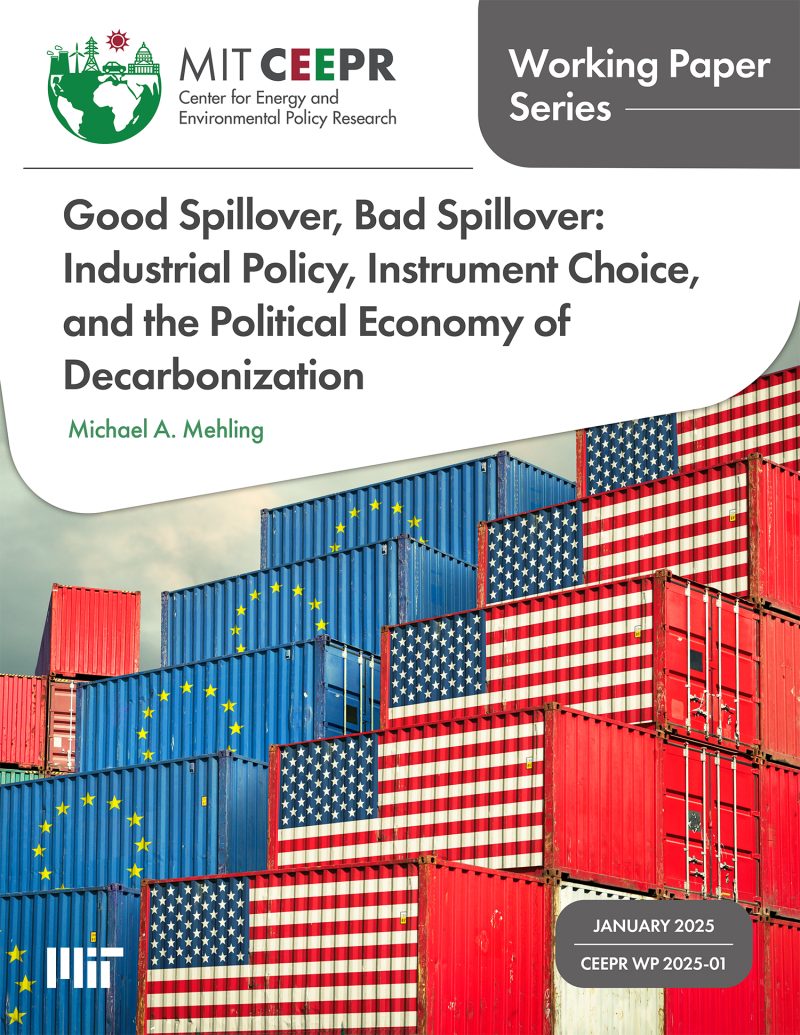Good Spillover, Bad Spillover: Industrial Policy, Instrument Choice, and the Political Economy of Decarbonization
Michael A. Mehling
January 2025
Spillover effects can impede or advance climate action. They have enabled some of the greatest successes in climate change mitigation, yet also threaten to undermine accelerating decarbonization efforts. Because they are difficult to define and quantify, they are routinely neglected in the theoretical framing of climate policy instrument choice. Some spillover effects have been extensively studied, while others remain opaque, with scarcely understood causal mechanisms and interactions. Several international bodies have recently begun to elevate spillover effects in their work, but reveal the lack of an overarching conceptual framework in their approach and are politically constrained in the solutions they can propose. This Working Paper suggests a typology of spillover effects, and correlates these with two climate policy approaches that differ substantially in their political economy: interventions that impose a private cost on emissions, and interventions that socialize the cost of climate change mitigation. Drawing on recent policy developments on both sides of the Atlantic, the Working Paper goes on to show how spillover effects have influenced past instrument choices, and how those choices will in turn result in new and – in some cases – unintended spillover effects. As Europe, the United States and other major economies chart industrial policy trajectories that threaten to fragment international flows of goods, services, capital, and ideas, they risk exacerbating harmful and impeding beneficial spillover effects, increasing the cost and time horizon of decarbonization. The paper therefore concludes with options for improved understanding of spillover effects and enhanced policy coordination in their management to enable a virtuous sequence of climate policy diffusion and implementation.
Keywords: Spillover effects, European Green Deal, Net Zero Industry Act, Inflation Reduction Act, carbon pricing, CBAM, international trade, political economy
JEL classification: H23, F18, Q54



